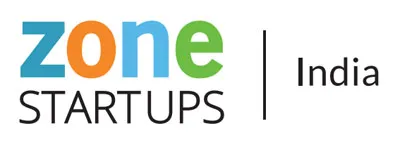What does an accelerator expect of a startup: a handy list of guidelines
Editor's note: Zone Startups India is a relatively new accelerator program in India, established earlier this February'14. Zone Startups India is set-up as a joint venture between Ryerson Futures Inc.(RFI), Toronto and the BSE Institute. RFI is the technology accelerator and investment-arm of Ryerson University; the Digital Media Zone in Toronto is Ryerson's flagship startup incubator program- which has incubated over 140 startups till date, and currently houses 78 startups. This article has been contributed by Ajay Ramasubramaniam, Director (Business Development), Zone Startups India. And the guidelines are from the point of view of Zone Startups.

Over the last 9-months, we have met and interviewed in excess of 130 startups; and on-boarded 38 till date. Uniquely, we are a revolving program i.e, there is no fixed cohort start-date or graduation day, and we have a regular inflow of startups through various approaches. We focus on industry connect and customer acquisition. While 6 of them have ceased to exist due to several reasons - including pivots, mergers, founder breakups; around 20+ startups have been with us for atleast 6 months.Based on 5-years of our learnings from DMZ, we have established certain guidelines for startups to follow. We have a contract sign-off that stipulates these guidelines, and startups sign-off on them, before being officially on-boarded. We are a non-equity program for the 4-months period, during which we offer physical space and several value added services to the startups, such as dedicated mentor-pool, business development support, industry connect program, investor access, technology support etc. This makes it all the more important to set expectations from the beginning. An accelerator needs a startup as much as a startup needs an accelerator.”

Outlined here-under are the 5 C’s that Zone Startups India wants from their startups:
1) Collaboration - an accelerator program, especially the one like ours which is physically based on an open-concept, is to allow collaboration to thrive. We call it the multi-disciplinary approach; where, we purposely have a mixed-bag of startups, in terms of founders profile and business verticals. An accelerator is like a community in itself, and there are several gains that can come through because of collaboration. An ace programmer, design thinker, the growth hacker - could all be on someone else's team but, can add tremendous value to your team by virtue of collaboration. Likewise, you could be someone's first customer or help create an awesome presentation, in return. We place a lot of emphasis on peer-to-peer learning. We have tried different versions of it but, sort of zeroed-in on having mixed groups. Sometimes being amongst same set of teams, may not allow you to get that "wow" idea. We have had several instances of startups testifying that they wouldn't have been able to achieve validation, growth hacking, customer connect etc. without the support of this peer network collaboration. So, #1 on my list of what we want from startups is, collaboration.
2) Communication - It is very important that startups communicate well, internally and externally.
External Communication - It is kind of tied-into collaboration in several ways, however, at a community level. When I say external collaboration, I mean startups talking about the accelerator program that they are a part of, when they attend events or meet clients. This is one way an accelerator can raise its profile within the community, as well as enable the program to attract new talent and entrepreneurs.
Internal Communication - Likewise, it is important that startups communicate internally as well, within the accelerator program. This communication is more about sharing of experiences, client references, opportunities, events or programs that may benefit other startups etc. Likewise, startups need to be actively engaged in talking to the accelerator program, to make the experience better. There is no one-size-fits-all model. Feedback always helps in improving the program and its output.
3) Coachable – an accelerator program and its resources are available to startups for helping them scale up and/or to help them fail fast. The “fail fast” model may sound negative at first but, human capital is perhaps the most important element of any organization, let alone only startups. Failing fast has several positives to it. Most importantly, it enables the entrepreneur to preserve resources. Within an accelerator set-up, failing fast can lead to a high quality resource being acquired by another growing startup. Startups need to be coachable, especially when you have high quality mentors guiding you. While it is important to have conviction in the path that an entrepreneur or startup has chosen, at the same time, if a seasoned mentor is providing his insights or feedback, the startup must at least hear them out. Being brash and insulting can put off a mentor, who is offering pro-bono time for such a session; and this in turn affects the accelerator programs ability to access their time in future.
4) Considerate – startups need to be considerate, while using resources being offered by an accelerator. If services are pro-bono, they should not misuse them or show less respect. One can’t be like a “visiting startup” who shows up only when they need some help or feel like. While there is no harm in it; it only reduces the engagement to a large extent. Also, if an accelerator is not plugged into the working and progress of a startup, it won’t be able to add a lot of value.
5) Choosy - several startups sign up for multiple accelerator programs simultaneously, or jump from one program to another. I'm sure it is a common global trend but, personally, I feel it may not be the best thing to do, unless you are moving from a local program to say, a Y-Combinator or so. Jumping accelerators is almost like changing jobs laterally, which won't give you that exponential career growth. Also, startups need to be very choosy in picking the right accelerator. Just like a product-market fit, there has to be a startup-accelerator fit as well, and startups have to be strategic in the approach to apply for intakes.
These are the 5 C’s that we, as an accelerator looks for from a startup, to make the relationship a rewarding one for both parties.
Related read: Checkout some of the interesting startups from Zone's portfolio.







